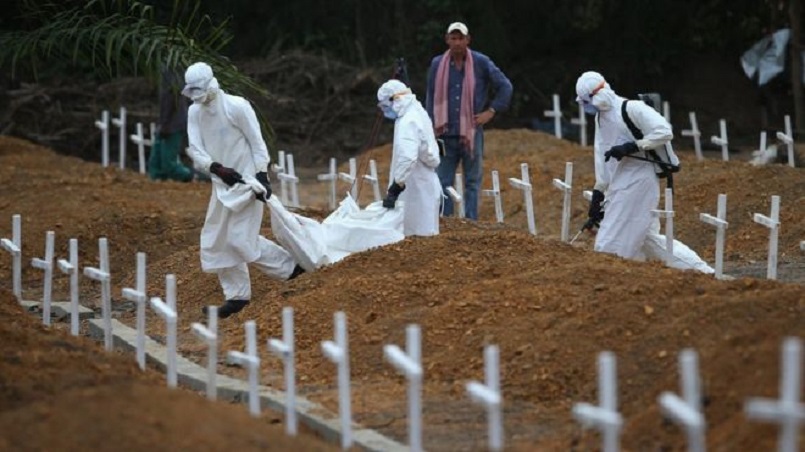
Ebola dramatically adapted to infect human tissues with ease in the first few months of the 2014-15 outbreak, research suggests.
Two studies, in the journal Cell, found a mutation increased the virus' ability to infect human cells fourfold.
Scientists have argued the mutation may have been "pivotal" in the outbreak becoming the largest in recorded history.
There were 28,616 Ebola cases in Guinea, Liberia and Sierra Leone.
And 11,310 people died during the outbreak.
Researchers at the University of Nottingham and the University of Massachusetts analysed the genetic code of nearly 2,000 Ebola virus samples.
What they noticed was a change on the surface of the virus that allowed it to lock on to human cells more easily.
Prof Jeremy Luban, University of Massachusetts Medical School, told BBC World Service's Science in Action: "The mutation makes the virus more infectious.
"It arose early in the outbreak, perhaps three or four months in."
Prof Jonathan Ball, from the University of Nottingham, said an up to fourfold increase in infectivity was "not trivial".
He told the BBC News website: "When a virus is introduced into a new environment, a new niche, it will try to adapt to that new environment.
"That just happened to coincide with widescale spread of the virus - this was a mutation that appeared when the virus took off."
The Ebola outbreak in West Africa was not just the biggest of all time, but it was bigger than all other outbreaks combined.
One reason for Ebola's explosive spread was that the virus managed to get into dense urban cities such as Monrovia in Liberia.
But Prof Luban added: "One possibility is this mutation, which has never been seen before, in some way contributed to the severity of the outbreak and answering that question conclusively is probably something we cannot do.
"[But] it is hard to imagine the mutation was not relevant."
The research provided other insights into the changes taking place in the Ebola virus.
As the virus adapted to more readily infected people it became less able to infect its likely natural host species - fruit bats.
And the people infected with the mutant form of the virus were more likely to die than those infected with the original version.
This runs slightly contrary to the prevailing thought that as Ebola spent more time in people it would evolve to become less deadly in order to help it spread.
Dr Ed Wright, from the University of Westminster, commented: "One of these changes occurred around the time when the number of cases started to dramatically increase.
"This gives rise to the possibility that this change could have been pivotal in the virus' ability to infect humans and ultimately the scale of the outbreak.
"However, these studies do not definitively answer the latter question."
